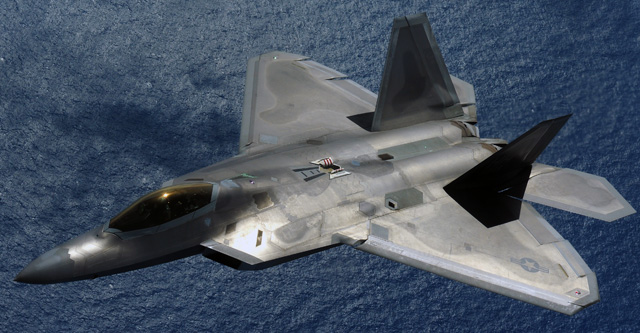Stealth technology is not going to be rendered obsolete anytime soon, a top US Air Force official says.
"Our adversaries are building capabilities to see stealth airplanes," says Gen Mike Hostage, commander of Air Combat Command, speaking at the Center for Strategic and International Studies on 30 November. "But not at any faster rate than we're developing abilities to remain, not invisible, but able to deal with the relative visibility and invisibility."
 |
|---|
USAF |
Stealth, Hostage stresses, does not mean an aircraft is invisible, it just means the jet is much harder for an enemy to see. That enables the aircraft to get closer to the target it is trying to engage.
But while the US is making strides in making stealth aircraft even more difficult to detect and track, there are advances too in making low observable technology easier to maintain, Hostage says. A stealth aircraft is inevitably more time-consuming and costly to care for than a non-stealthy version, but the Lockheed Martin F-35 should be much easier to sustain than previous generations of low-observable fighters. However, technological advances will only narrow the gap between fourth- and fifth-generation aircraft so much, says Hostage. "It will always be more expensive to maintain a stealthy airplane," he says.
But Hostage says that while stealth technology continues to evolve, this will not be forever. "I'm sure there is a point of diminishing returns somewhere," he says. "And that's why we're already looking at what defines the sixth-generation."
There will have to be a sixth-generation fighter at some point, which Hostage says is notionally around 2030. Unlike fifth-generation fighters, where Hostage says the definitive technology is stealth, there may not be one particular attribute that defines a sixth-generation machine. There could a combination of several emerging technologies, but it is too early to say. "It'll be some type of game-changing capability," Hostage says. "It's not going to be an iterative growth of this capability."
Source: Flight International























